In the rapidly evolving food and confectionery manufacturing landscape of the Middle East, Jordan has emerged as a strategic hub for industrial food production. As local manufacturers expand to meet regional demand, one essential ingredient plays a critical role in product texture, flavor, and stability — cocoa butter. For production facilities across Jordan, securing a reliable cocoa butter supplier is not just about cost or availability; it’s about ensuring product consistency, optimizing manufacturing efficiency, and maintaining competitiveness in a market driven by quality.
At its core, cocoa butter is the lifeblood of chocolate and confectionery formulations. It defines the snap of a chocolate bar, the mouthfeel of a ganache, and the sheen of a premium coating. In industrial settings, these sensory attributes translate into measurable production outcomes — from molding precision and shelf-life to downstream compatibility in automated processing lines. In this article, we explore the technical, operational, and strategic dimensions of sourcing cocoa butter in Jordan, drawing on industrial insights and supplier expertise that manufacturers can apply directly on their production floors.
Understanding Cocoa Butter in Industrial Applications
Cocoa butter is the natural fat extracted from cocoa beans during the chocolate-making process. In industrial use, it serves not only as a fat source but as a functional ingredient that governs viscosity, melting profile, and structural integrity in confectionery and bakery formulations.
Manufacturers often choose between:
- Natural cocoa butter, prized for its aroma and unrefined purity.
- Deodorized cocoa butter, which offers neutral flavor suitable for diverse product lines.
- Fractionated or specialty cocoa butters, engineered to achieve specific melting behaviors for coatings, fillings, and compound chocolates.
In large-scale production, even small variations in cocoa butter composition can affect product behavior on tempering lines or depositor machines. That’s why procurement officers and production managers place heavy emphasis on specification consistency, melting point control, and batch traceability when selecting their cocoa butter supplier.
Why Cocoa Butter Matters to Jordan’s Manufacturing Ecosystem
Jordan’s industrial growth has been strongly tied to its confectionery, bakery, and dairy sectors. The nation serves as a gateway for regional exports to neighboring markets in Saudi Arabia, Iraq, and the UAE. As demand for premium and mid-tier chocolate products grows, factories in Amman, Zarqa, and Irbid are scaling up production — requiring reliable sources of high-quality cocoa butter.
However, the challenge lies in balancing price competitiveness with functional performance. Cocoa butter prices fluctuate with global cocoa bean production, influenced by weather conditions in West Africa and political shifts in key producing regions like Ghana and Côte d’Ivoire. For Jordanian manufacturers, this makes supplier selection not just a procurement task, but a strategic operational decision.
At MT Royal, we’ve observed that factories leveraging long-term supply partnerships tend to achieve more stable production outputs and lower overall costs per kilogram. Reliability in supply translates directly into fewer downtimes, less product waste, and predictable performance across batches — key metrics for plant managers focused on efficiency.
Industrial Sourcing Dynamics in Jordan
Sourcing cocoa butter in Jordan requires navigating a supply chain that extends across continents. Raw materials typically originate from West Africa or Latin America, and undergo processing in Europe or Asia before reaching Middle Eastern buyers. Logistics, customs handling, and cold-chain storage all play essential roles in maintaining product integrity.
Factories often evaluate suppliers on:
- Origin consistency: Ensuring the same bean origin for flavor uniformity.
- Certification standards: Including ISO, HACCP, and Halal compliance.
- Batch documentation: Certificates of analysis (COA) for each shipment.
- Packaging type: Industrial blocks (25 kg) or customized bulk formats.
Here, MT Royal has become a strategic partner for industrial buyers in Jordan by providing multi-brand access, streamlined import handling, and flexible packaging solutions.
As we often emphasize to our partners, “Price per ton is only one side of the equation — the real value lies in operational reliability and product compatibility.”
Technical Properties that Influence Manufacturing Outcomes
Understanding the physical and chemical properties of cocoa butter is critical for production planning. Among the most relevant metrics for factory supervisors and QA engineers are:
| Property | Typical Range | Manufacturing Impact |
|---|---|---|
| Melting Point | 30–34°C | Defines chocolate tempering behavior |
| Iodine Value | 33–38 | Indicates unsaturation level |
| Free Fatty Acid (FFA) | <1% | Affects shelf-life and flavor stability |
| Peroxide Value | <2 meq/kg | Determines oxidative freshness |
| Solid Fat Content (SFC) | 60% at 20°C | Impacts product snap and gloss |
Deodorized cocoa butter, in particular, is favored by large-scale manufacturers in Jordan producing compound chocolates and coatings, as it allows flavor neutrality while ensuring textural consistency across multiple SKUs.
Quality and Performance: Choosing the Right Supplier
Selecting a cocoa butter supplier in Jordan involves more than comparing technical sheets. Manufacturers must evaluate:
- Processing consistency – Are refining and deodorization methods controlled to avoid variable melting behavior?
- Supply stability – Can the supplier maintain lead times during global shortages?
- After-sales support – Is there technical assistance available for formulation adjustments?
- Storage conditions – Does the supplier ensure temperature-controlled logistics to prevent fat bloom?
This is where MT Royal’s role as a technical supplier (not merely a distributor) becomes crucial. We don’t just deliver products — we help production teams calibrate their processes around the characteristics of each batch. For instance, minor variations in melting profile can be offset by adjusting conching temperatures or tempering curves, preventing costly rejects.
Spanish Engineering and Latamarko’s Premium Benchmark
Spanish manufacturers have long earned recognition for their precision in fat processing and quality refinement. Latamarko, a premium European brand, exemplifies this commitment to excellence. With a focus on uniform crystal structure, tight melting range, and clean sensory profile, Latamarko cocoa butter is particularly suited for high-end confectionery and cosmetic applications.
For factories in Jordan targeting export-grade or luxury chocolate lines, using a Spanish-origin brand like Latamarko adds measurable value. In our experience, such products exhibit superior gloss retention, longer shelf-life, and optimized fluidity during deposition — key performance indicators in industrial chocolate molding and enrobing operations.
Common Pitfalls in Cocoa Butter Procurement
Even experienced factory buyers occasionally overlook crucial sourcing details that impact downstream efficiency. Here are some pitfalls to avoid:
- Ignoring origin traceability – Inconsistent bean origins can lead to variations in melting points and flavor.
- Over-prioritizing cost – Lower-priced cocoa butter often comes with higher FFA levels, affecting product quality.
- Improper storage – Extended exposure to temperatures above 28°C can cause fat bloom or rancidity.
- Lack of supplier communication – Without clear batch feedback, performance optimization becomes guesswork.
To mitigate these risks, we recommend regular COA verification, temperature-controlled warehousing, and technical collaboration with suppliers like MT Royal who understand both the commercial and technical sides of production.
Cost Optimization for Industrial Buyers
In Jordan’s competitive market, procurement managers constantly face the challenge of reducing costs without sacrificing quality. One proven strategy is dual-sourcing — maintaining a mix of premium and standard cocoa butter suppliers to balance price volatility. Another effective approach is forward contracting, locking in prices during favorable global market trends.
Additionally, by purchasing through regional suppliers like MT Royal, factories benefit from:
- Shorter lead times
- Local inventory access
- Lower freight and customs overhead
- Batch-based technical consultation
Such integration doesn’t just save money — it stabilizes production schedules, which, in industrial terms, translates into fewer machine idle hours and better throughput.
Cocoa Butter in Non-Food Industries
Beyond confectionery, cocoa butter also supports cosmetic and pharmaceutical manufacturing in Jordan. Its emollient properties, oxidative stability, and smooth texture make it an ideal ingredient in lotions, lip balms, and topical formulations. Cosmetic manufacturers prioritize pharmaceutical-grade cocoa butter, emphasizing purity and peroxide control.
MT Royal supplies both food-grade and cosmetic-grade cocoa butter, offering flexibility for multi-sector clients. This dual expertise allows us to support cross-industry innovation — for example, confectionery manufacturers who diversify into functional beauty products.
Practical Tips for Factory Managers and Production Engineers
Here are actionable steps for optimizing cocoa butter use in industrial settings:
- Monitor melting curves regularly to ensure consistency across batches.
- Temper carefully — even a 0.5°C deviation can alter crystal structure and affect gloss.
- Blend strategically — mixing deodorized with natural butter can achieve balance between flavor and cost.
- Store properly at 18–20°C in a dry, odor-free environment.
- Work with suppliers who provide technical documentation and formulation insights.
As one plant manager we collaborated with in Amman remarked, “Consistency is the true currency of manufacturing — and that starts with your supplier.”
FAQs: Cocoa Butter Sourcing in Jordan
Q1: What’s the difference between natural and deodorized cocoa butter?
Natural retains its aroma and flavor, ideal for premium chocolates. Deodorized is neutral, better for broad applications.
Q2: How can factories ensure cocoa butter quality on arrival?
Always check COA specifications, ensure sealed packaging, and perform a small-scale melt test for color and odor uniformity.
Q3: Is European-origin cocoa butter worth the higher price?
For high-end applications, yes. European brands like Latamarko deliver unparalleled consistency and performance.
Q4: What’s the typical shelf-life of cocoa butter in industrial storage?
Under optimal conditions (below 25°C, away from light), cocoa butter can last up to two years without degradation.
Q5: Can local sourcing in Jordan meet large-scale industrial needs?
Currently, Jordan imports nearly all cocoa butter. Partnering with established importers like MT Royal ensures steady availability.
The Future of Cocoa Butter Sourcing in Jordan
Jordan’s confectionery and food manufacturing sectors are entering a new phase marked by quality-driven competition and supply chain modernization. The shift toward export-oriented production demands suppliers who can provide technical assurance, documentation transparency, and multi-brand flexibility.
At MT Royal, we’ve seen this evolution firsthand. Our partnerships with Jordanian factories have grown from basic commodity supply to integrated technical collaboration — fine-tuning fat systems, optimizing production lines, and helping clients stay ahead of market demands.
The market is clear: manufacturers who secure reliable, high-quality cocoa butter sources will define the next generation of premium chocolate and confectionery products in Jordan and beyond.
Final Thought
Industrial success in confectionery and food manufacturing goes far beyond having state-of-the-art machinery or automated production lines. True operational excellence is built on a foundation of materials that perform predictably, suppliers who offer reliable and consistent delivery, and processes that are continually refined to meet evolving product standards and market expectations. In the context of Jordan’s growing confectionery industry, the right cocoa butter can be the difference between a product that delights consumers with consistent texture, flavor, and appearance, and one that falls short due to variability in melting, bloom, or viscosity.
Choosing a trusted cocoa butter supplier is not just a procurement decision — it is a strategic move that impacts every stage of production, from tempering and molding to packaging and shelf-life stability. A reliable partner ensures that you have access to high-quality, certified cocoa butter when you need it, minimizes production interruptions, and provides technical guidance to optimize formulation and maintain quality standards across multiple product lines.
For manufacturers in Jordan who aim to compete regionally and globally, investing time and resources in securing the right cocoa butter supplier lays the groundwork for long-term operational efficiency, product excellence, and brand reputation. By partnering with experienced suppliers like MT Royal, who offer both premium options like Latamarko and practical industrial-grade solutions, factories can confidently scale production, innovate with new recipes, and consistently deliver products that meet the highest standards.
In essence, success in industrial chocolate and confectionery manufacturing is a synergy of quality ingredients, dependable partnerships, and intelligent production processes — and it all begins with choosing the cocoa butter that ensures your product’s performance, consistency, and market success.
latamarko alkalized cocoa powder lm60
cocoa powder for chocolate production-Best price
Food industry raw materials – list of products
Types of Gelatin from Turkish Manufacturer
Alkalized Cocoa Powder Bulk Supplier


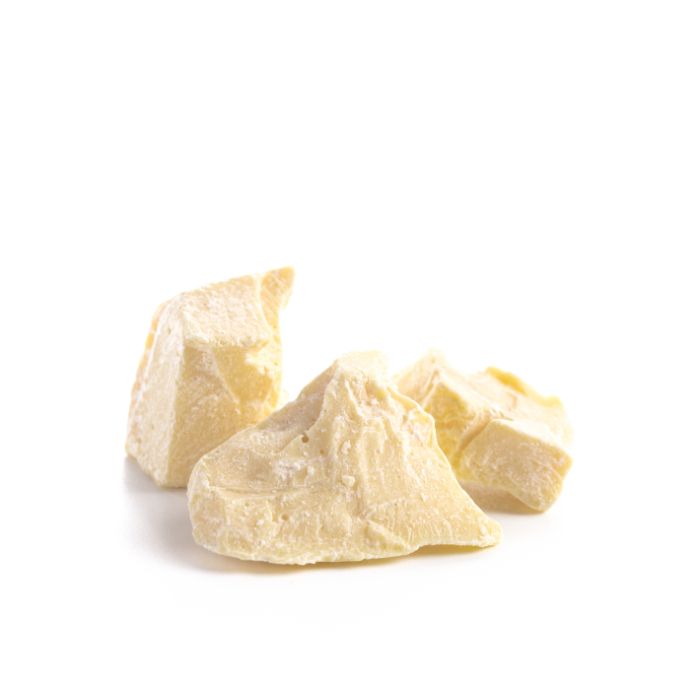
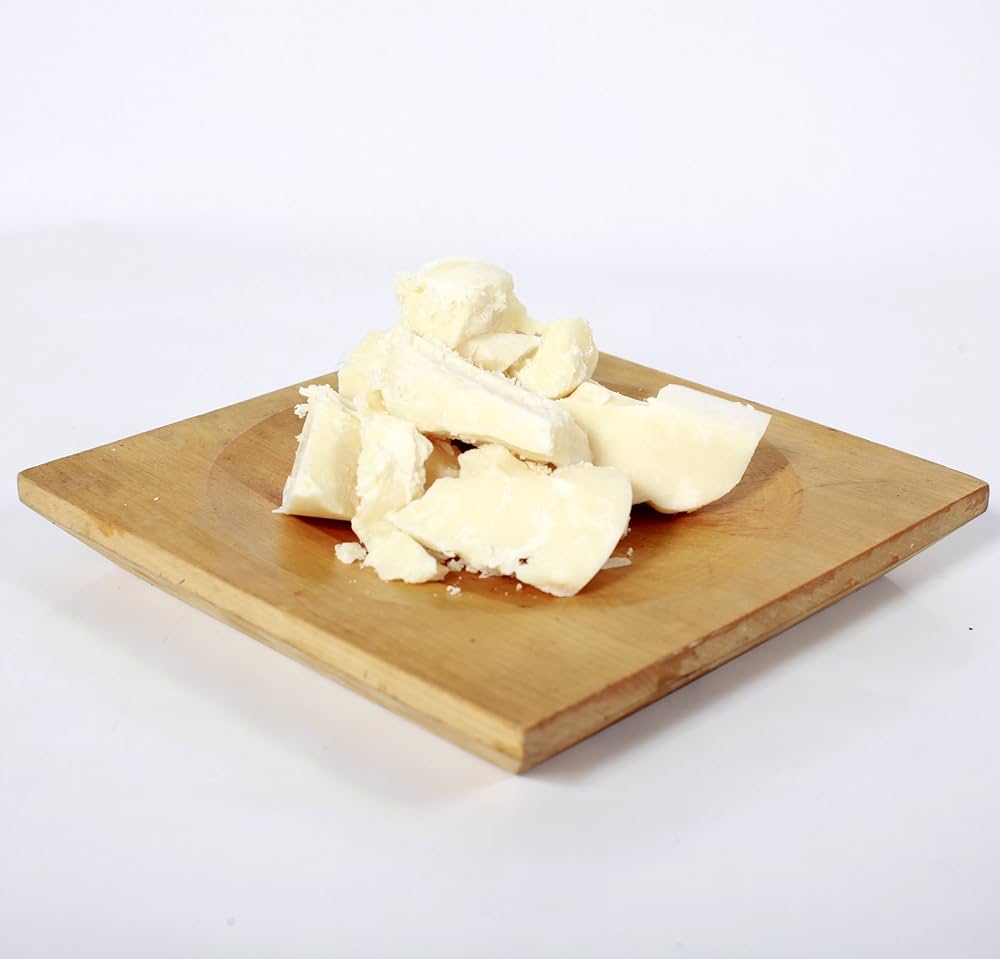
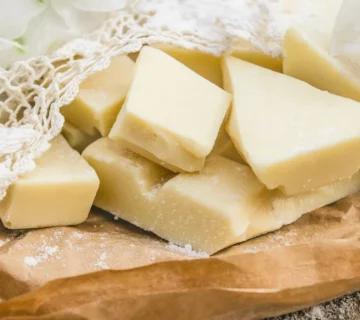
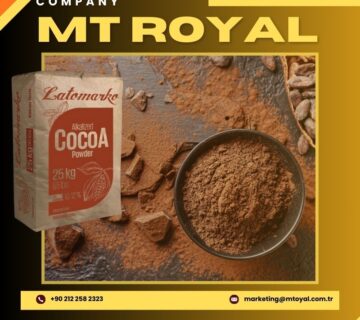
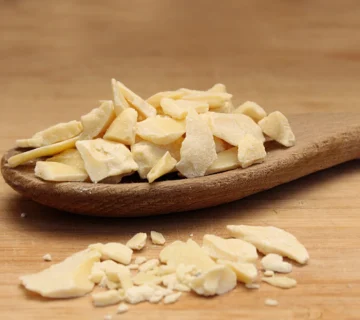
No comment